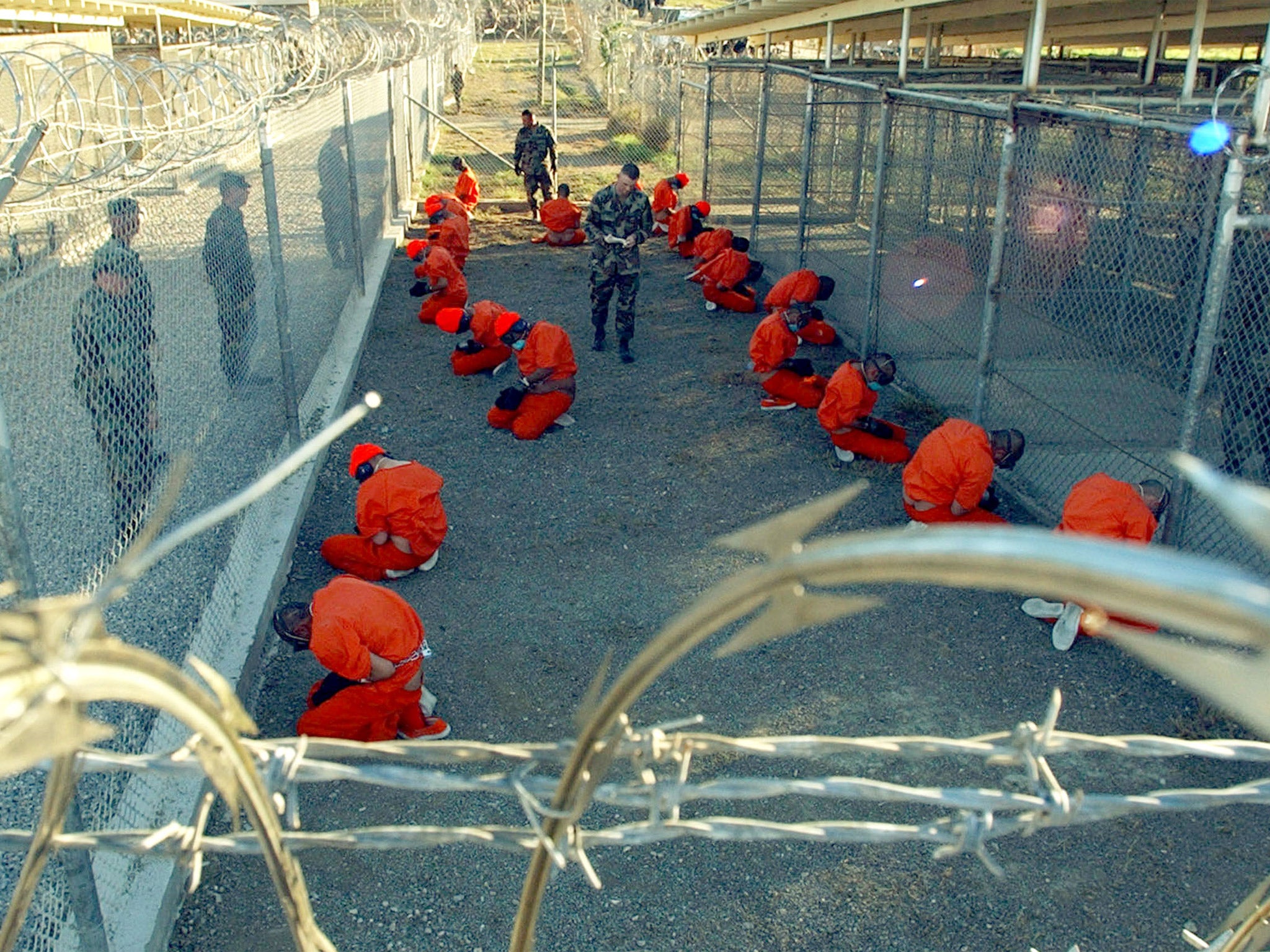The Independent's journalism is supported by our readers. When you purchase through links on our site, we may earn commission.
The diaries of Abu Zubaydah are not what you would expect from a jihadist
The voice is sensitive, and this presents challenges to the Western reader

The diaries of Abu Zubaydah – a Guantanamo Bay detainee - are troubling in a number of ways. For a start, they read nothing like the personal records of other jihadists to emerge recently, in particular those of ‘The White Widow’ Samantha Lewthwaite and Boston bomber Dzokhar Tsarnaev. In their private and public writings, Lewthwaite and Tsarnaev come across as both brain-dead and/or brainwashed. In other words, they write exactly how you hope jihadists would.
Lewthwaite, for example, recites slogans about “terrorising disbelievers” and composes a laughable ode to Osama bin Laden. Tsarnaev - before he bombed the 2013 Boston marathon - tweeted sentiments like “Idk why it’s hard for many of you to accept that 9/11 was an inside job” and “Gain knowledge, get women, acquire currency #livestrong”.
But Abu Zubaydah’s diaries, a copy of which was obtained by Al Jazeera and made public last week, reveal an interior life that is challenging and unnerving to the Western reader. Much of Zubaydah’s case is disputed. Originally proclaimed by George Bush to be a “top” Al-Qaeda operative, and part of the team that organised the 9/11 attacks, the Obama administration now no longer contends that the 42-year-old was ever a member of Al-Qaeda. He was, however, part of rival group the Martyrs Organisation, praised bin Laden, and provided at the very least logistical support to other terrorists. He has been in US custody since 2002.
Reading a diary is always a strange process, as you lend the private thoughts of someone else room inside your head. That process is all the stranger when the voice you give life to is that of someone who would see little wrong with blowing you to pieces. The diary starts in 1991, with Zubaydah a college student studying computer science. Details cannot but humanise the young Palestinian; he appreciates India’s “beautiful scenery”, and forms a friendship over being taught to ride a bike, but cannot shake depression “Happiness! I am making every effort searching for happiness…I try to find a slight light, yet I don’t.” Eventually, he travels to a jihadist training camp in Afghanistan, to “escape reality” and find the kind of camaraderie he missed in civilian life.
As a person, Zubaydah resists easy categorisation. He turns to jihad – against the wishes of his heartbroken family – for a muddle of personal, religious and political reasons (citing America’s role in the creation of Israel).
At the same time, he is terribly easy to categorise. For all the sensitivity of his voice, Zubaydah is a suspect in the bombing of American tourist sites in Jordan in 1999, among others. Actions speak louder than words. He has his story, but so did all the victims of those attacks. Still vulnerable to Islamic terrorism, we – as readers – have no choice but to treat him as an enemy.
We also have no choice but to recognise his rights as a human being, and condemn the fact that during captivity the CIA hung Zubaydah naked from a ceiling, chained him to a chair for a week, and waterboarded him 83 times. In Guantanamo, he is said to have largely lost his mind.
Join our commenting forum
Join thought-provoking conversations, follow other Independent readers and see their replies
Comments